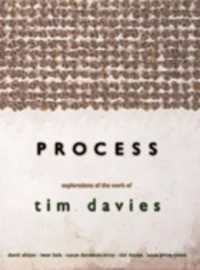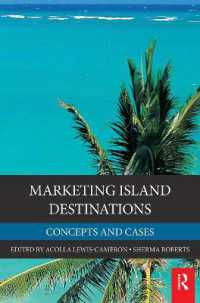Full Description
In the burgeoning field of ecolinguistics, little attention has been given to the ways in which English language teaching is and has become implicated in global ecological crises. This book begins a dialogue about the opportunities and responsibilities presented to the TESOL field to re-orient professional practice in ways that drive cultural change and engender alternate language practices and metaphors.
Covering a diverse range of topics, including anthropogenic climate change, habitat loss, food insecurity and mass migration, chapters argue that such crises require not only technological innovation, but also cultural changes in how human beings relate to each other and their environment. Arguing that it is incumbent upon the field of English language teaching to reckon with such cultural changes in how and what we teach, TESOL and Sustainability addresses the ways in which discourses such as eco-pedagogy, the critique of neo-liberalism, non-Western philosophy and post-humanist thought can and must inform how and what is taught in ESL and EFL classrooms.
Contents
List of Contributors
Foreword, Suresh Canagarajah (Edwin Erle Sparks Professor of Applied Linguistics, English, and Asian Studies, Penn State University, USA)
Introduction: TESOL and Sustainability, John Katunich (Dickinson College, USA) & Jason Goulah (DePaul University, USA)
Part I. Foundations for Sustainability in TESOL: Cultural Perspectives, Products, and Practices
1. Earth Democracy as Empowerment for TESOL Students and Educators: Though the Crisis Speaks English, englishes Can Become a Commons Language of Sustainability, M. Garrett Delavan (California State University, San Marcos, USA)
2. Re-orienting Language as a Commons: Dispositions for English Language Teaching in the "Second Watershed", John Katunich (Dickinson College, USA)
3. Post-Truth Pedagogy for TESOL: Our Collective Responsibility for the Two-Legged, the Four-Legged, the Flyers, the Swimmers, the Multi-Legged and the Stationary, Sandra Kouritzin (University of Manitoba, Canada)
Part II. Climate Change and Place as TESOL Curriculum and Pedagogy
4. TESOL into the Anthropocene: Climate Migration as Curriculum and Pedagogy in ESL, Jason Goulah (DePaul University, USA)
5. A Place-Based Ecopedagogy for an English for Academic Purposes Program, Kevin Eyraud (Utah Valley University, USA)
6. Cross-Cultural Communication in Tourism Encounters and Implications for Sustainable TESOL, Bal Krishna Sharma (University of Idaho, USA)
7. Saving the World without (Eco)Justice? English-Language Voluntourism, Rural Education, and Root Metaphors of Success, Cori Jakubiak (Grinnell College, USA) & Alan Hastings (Central College, USA)
Coda: The Incommensurability of English Language Pedagog[uer]y and Sustainability: Spirits and Protein, Satoru Nakagawa (University of Manitoba, Canada)
Index







